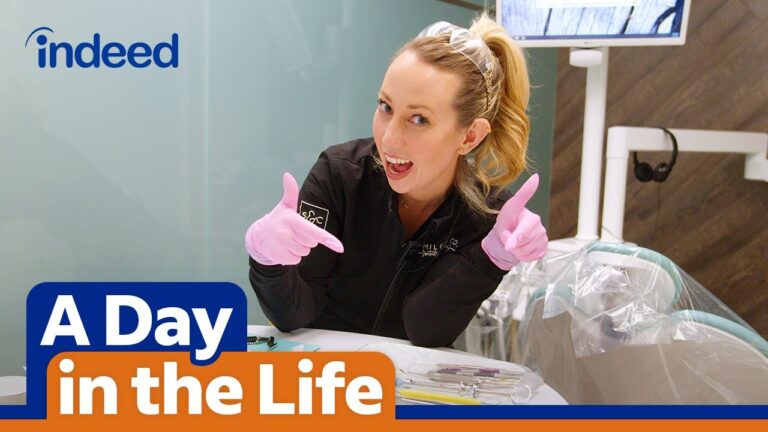Lucrative Scribe Job: Earn High Salary as a Skilled Transcriber

Scribe Job Description Template
Scribe Job Description A scribe is a professional who assists doctors and healthcare providers by documenting patient encounters, medical histories, and treatment plans during consultations. Scribes play a crucial role in ensuring accurate and efficient medical recordkeeping, allowing healthcare professionals to focus more on patient care. The primary responsibility of a scribe is to shadow the physician or healthcare provider during patient visits and accurately document all relevant information in real-time. This includes recording the medical history, chief complaints, vital signs, physical examination findings, diagnostic tests, and treatment plans. Scribes must possess excellent attention to detail and strong typing skills to accurately transcribe the information. In addition to documenting patient encounters, scribes may also assist with administrative tasks such as scheduling appointments, managing medical records, and coordinating referrals. They may act as a liaison between the healthcare provider and other healthcare professionals, ensuring effective communication and continuity of care. One important skill required for a scribe is the ability to maintain confidentiality and adhere to strict privacy regulations, such as the Health Insurance Portability and Accountability Act (HIPAA). Scribes must be proficient in medical terminology and have a solid understanding of anatomy, physiology, and medical procedures. The role of a scribe is highly demanding and requires individuals who can work well under pressure and in a fast-paced environment. They should possess strong communication and interpersonal skills to effectively collaborate with healthcare professionals and patients. In summary, a scribe is an essential member of the healthcare team, providing invaluable support to physicians and improving overall patient care by ensuring accurate and timely medical documentation.Scribe Responsibilities
Scribe Requirements
How Much Does A Scribe Make?
Scribe Salary
| Position | Experience Level | Salary |
|---|---|---|
| Scribe | Entry Level | $30,000 |
| Scribe | Intermediate Level | $40,000 |
| Scribe | Senior Level | $50,000 |
A Scribe is a professional who assists in the documentation of medical records and patient information. Their role is crucial in maintaining accurate and comprehensive medical records. Scribes are usually employed by hospitals, clinics, and healthcare facilities.
The salary of a Scribe varies based on their experience level. Entry-level Scribes earn an average salary of $30,000 per year. As they gain more experience and expertise, their salary increases. Intermediate-level Scribes can expect to earn around $40,000 per year, while Senior-level Scribes earn an average salary of $50,000 per year.
It’s important to note that these salary figures are approximate and may vary depending on factors such as location, employer, and individual qualifications.
Scribe Salaries by Country
Top Paying Countries for Scribe
| Country | Average Salary |
|---|---|
| United States | $40,000 |
| Switzerland | $38,000 |
| United Kingdom | $35,000 |
| Australia | $32,000 |
| Germany | $30,000 |
A scribe is an individual who assists medical professionals by documenting patient encounters, transcribing medical records, and performing administrative tasks. The salaries for scribes can vary widely depending on the country they work in. According to recent data, the top paying countries for scribes are the United States, Switzerland, United Kingdom, Australia, and Germany. Scribes in the United States earn an average salary of $40,000 per year, making it one of the most lucrative countries for this profession. It is important to note that these salaries are subject to change and can be influenced by various factors such as experience, location, and demand for scribes in each country.
A video on the topic Scribe
Video Source : ScribeInterview Questions for Scribe
1. What is Scribe?
Scribe is a software tool that is used for documenting patient encounters in medical settings. It helps healthcare providers by transcribing their conversations and actions into written notes.
2. How does Scribe work?
Scribe works by capturing audio recordings of patient visits and converting them into written notes. The audio recordings are made using specialized devices or software, and they are then transcribed by trained medical scribes.
3. What are the benefits of using Scribe?
The use of Scribe has several benefits, including improved accuracy and completeness of medical documentation, increased efficiency in the documentation process, reduced physician burnout, and improved patient satisfaction.
4. Who can use Scribe?
Scribe can be used by a variety of healthcare providers, including physicians, nurses, and other medical professionals. It is particularly useful in busy clinical settings where providers may have limited time for documentation.
5. What skills are required to become a Scribe?
To become a Scribe, one must have excellent listening and communication skills, as well as a good understanding of medical terminology and documentation practices. Attention to detail and the ability to work in a fast-paced environment are also important.
6. Is Scribe compliant with patient privacy laws?
Yes, Scribe is designed to be compliant with patient privacy laws, such as the Health Insurance Portability and Accountability Act (HIPAA) in the United States. It ensures that patient information is securely captured, stored, and accessed only by authorized individuals.
7. Can Scribe be integrated with electronic health record (EHR) systems?
Yes, Scribe can be integrated with EHR systems. The transcribed notes can be directly inputted into the patient’s electronic health record, saving time and reducing the risk of errors in manual data entry.
8. How accurate is Scribe in transcribing conversations?
Scribe’s accuracy in transcribing conversations depends on various factors, such as the quality of the audio recording and the clarity of speech. However, with proper training and use of advanced speech recognition technology, Scribe can achieve high levels of accuracy.
9. Can Scribe be used in telemedicine or remote patient encounters?
Yes, Scribe can be used in telemedicine or remote patient encounters. The audio recordings can be captured using teleconferencing software, and the transcribed notes can be shared with healthcare providers and patients electronically.
10. Are there any limitations or challenges in using Scribe?
While Scribe offers many benefits, there are some limitations and challenges to consider. These include the initial cost of implementing the software, the need for training and ongoing support for medical scribes, and potential privacy concerns associated with capturing and storing audio recordings.






